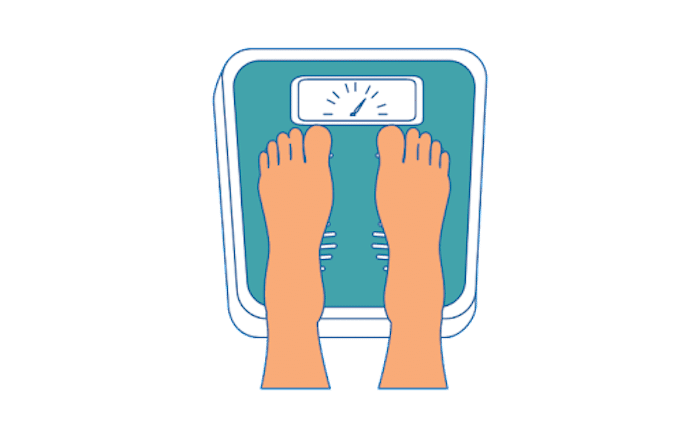Weight loss is a gradual process and takes some time. Though it could be challenging, anyone can achieve their desired weight. However, many people need help losing weight, as they may follow misguided or outdated advice.
Some changes in your diet and lifestyle can significantly impact the long run, so stay positive and keep up the excellent work. To lose weight successfully, making the right choices and avoiding common mistakes is essential.
7 Top Mistakes That One Should Avoid
Several mistakes that need to need to avoid for weight loss are:
Eating Too Many Or Too Few Calories
It is essential for anyone trying to lose weight to create a calorie deficit that means that you are consuming fewer calories. This can be accomplished by eating smaller meals, avoiding high-calorie foods, and increasing your activity level.
In addition, it is essential to ensure that the calories you consume are from healthy sources. While losing weight requires consuming fewer calories than you burn, it’s necessary to strike a balance.
Don’t Exercise Too Much
If you’re trying to lose weight, the more exercise you do, the faster the pounds will come off. However, that’s only sometimes the case. If you overdo it on the exercise front, you could slow down your weight loss.
When you overexert yourself during a workout, your body goes into survival mode. It starts to hold on to fat stores for energy. This is because your body doesn’t know when or where its next meal is coming from, so it wants to be sure it has enough energy reserves.
Suppose you need to get more calories. In that case, your body will break down muscle tissue instead of burning fat.

Focusing Only On The Scale
Everyone knows their weight can fluctuate, but it can be challenging to understand why?. People tend to focus on the number on the scale as an indication of body fat; unfortunately, this is not an accurate measure. Weight changes can be caused by muscle gain, increased water retention, and the effects of diets. Exercise and lifestyle habits are only sometimes immediately visible on the scale.
To better understand how our weight is changing, we should use additional markers such as measurements, body fat percentage, and waist circumference, as well as monitor energy levels throughout the day. With this information, we can make more informed decisions about our health and fitness goals, helping us to reach our desired results much faster.

Not Lifting Weights
Lifting weights is often seen as a way to bulk up and add muscle, but it can also be an effective weight-loss tool. By building muscle, lifting weights helps to increase the number of calories. People who add weightlifting to their workout routine can see more significant results in body fat loss than those who only do cardio exercises.
However, lifting moderate weights and focusing on compound exercises that work for multiple muscle groups is essential. Lifting too much weight can lead to injuries. Using machines or isolation exercises will give you different calorie-burning benefits than compound movements.

Not Drinking Enough Water
Despite what you may have heard, water is not the enemy regarding weight loss. Drinking plenty of water is critical for maintaining a healthy weight. When you are appropriately hydrated, your body is better able to metabolize fat and burn calories.
Furthermore, water helps fill you up and keep you satisfied between meals. So next time you are trying to slim down, be sure to drink up. Just remember to avoid sugary beverages like soda and fruit juice, which can sabotage your weight loss efforts.

Not Getting Enough Sleep
Feeling tired and groggy can increase your cravings for unhealthy foods and your appetite, making it harder to stay on track with a healthy weight-loss plan. This is because when you’re sleep-deprived, your body produces a stress hormone called cortisol which interferes with proper metabolism and can contribute to weight gain.
So if you’re striving to keep those numbers on the scale low, give yourself plenty of time to rest each night to get the most out of any diet or exercise program. A good night’s sleep will help you achieve your goals safely and effectively!

Skipping Meals
Small meals throughout the day are great for your body to keep your metabolism working. It can even help you stay healthier since it helps prevent hunger cravings. Eating this way keeps your body in a comfortable balance. It prevents it from going into “starvation mode” – a state where it saves energy by slowing the metabolism, leading to the storage of fats as energy reserves.
However, your body struggles to adjust when you skip meals or eat irregularly spaced large meals. Then the body lowers its metabolism and stores fat-and may lead to unhealthy food cravings later on. Eating healthy, balanced meals regularly throughout the day is key to keeping your body working correctly and preventing weight gain.

Not Taking Enough Protein
A high-protein diet has been shown to promote weight loss in several ways. First, protein-rich foods tend to be more filling than other types of food, so you are likely to eat less overall. Second, the body burns more calories by digesting protein, so a high-protein diet can boost metabolism.
Protein helps preserve lean muscle mass, which is essential for burning fat. While a high-protein diet may have some benefits, it is necessary to remember that all calories are not created equal. If are missing out on proteins, you could go for effective diet supplementation. To lose weight, you must ensure that you eat whole foods and get enough exercise.

Final Thoughts
Losing weight is a common goal, but it can be challenging. Unfortunately, plenty of potential landmines on the path to success can make failure inevitable. Many sabotage their efforts by making simple mistakes that one could avoid. Involve anything from setting over-aggressive goals, lack of planning and commitment, or choosing fad diets rather than sensible dietary changes like reducing gluten, that promote more lasting results.
The good news is that these pitfalls are entirely avoidable, provided you’re aware of them, equip yourself with the right resources, and ensure that your expectations are realistic and attainable. With some dedication and effort, your weight loss goal will be within reach in no time.


